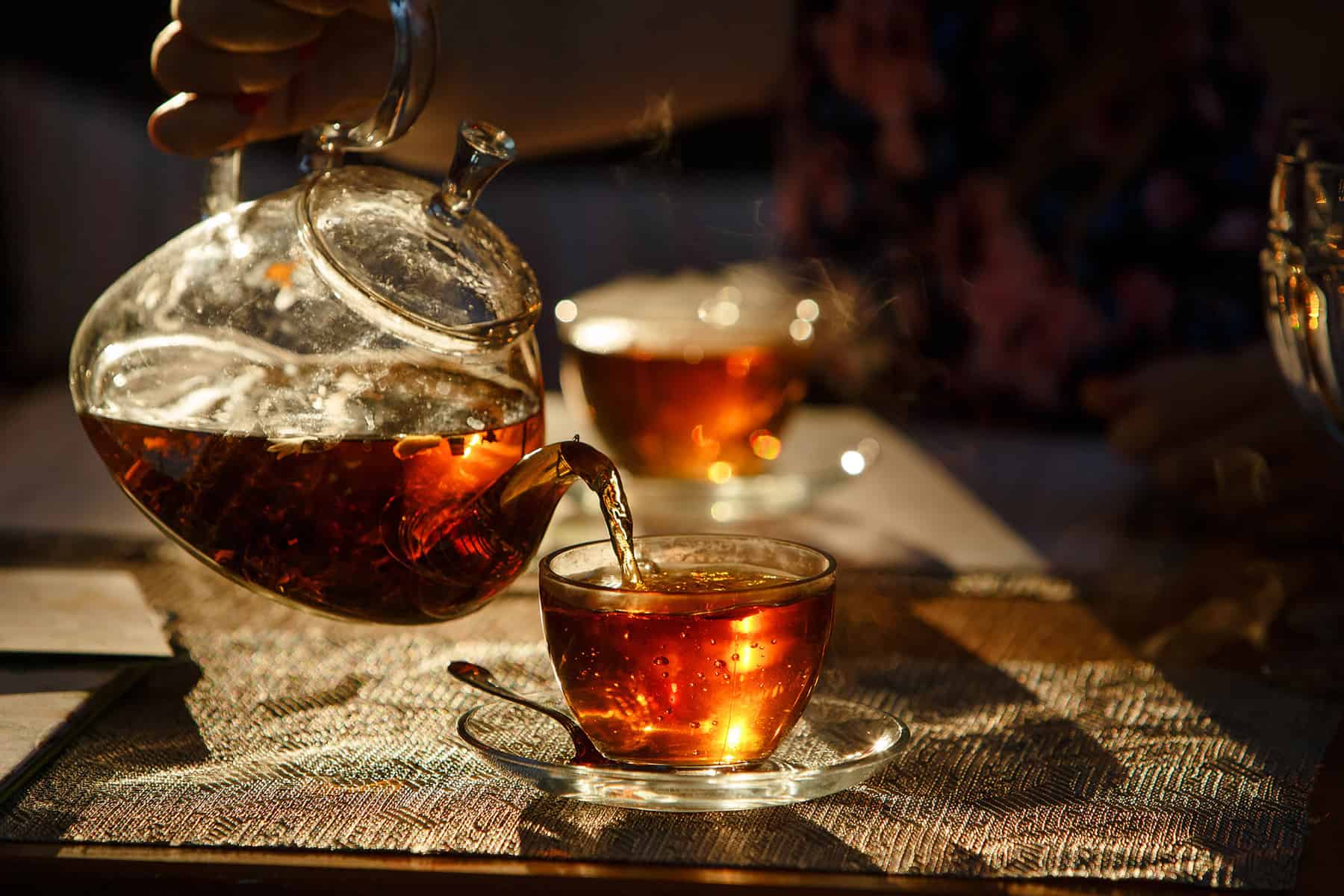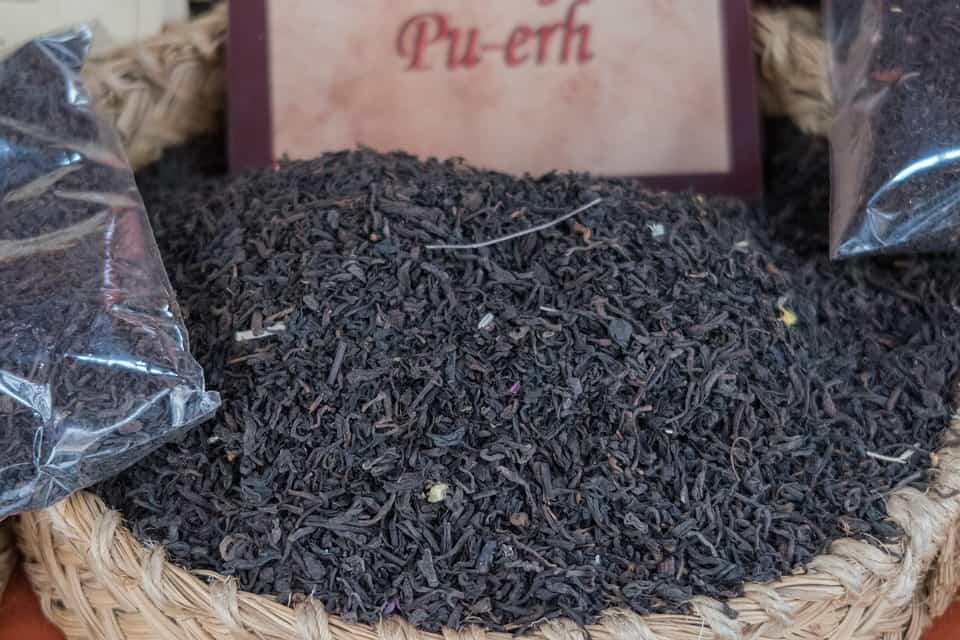Is your body reluctant to the injury? Inflammation may happen when your body fights something injurious. In the result of the injury, your immune system tries to heal itself.
If you suffer from chronic inflammation, it may lead to some health problems like rheumatoid arthritis, Alzheimer’s, heart disease, and irritable bowel syndrome.
To avoid chronic inflammation, you need to adjust to a healthy lifestyle and dietary habit.
One of the ways to reduce inflammation is by drinking the best tea for inflammation. Read and find out more about 11 teas that help inflammation.
1. Turmeric Tea
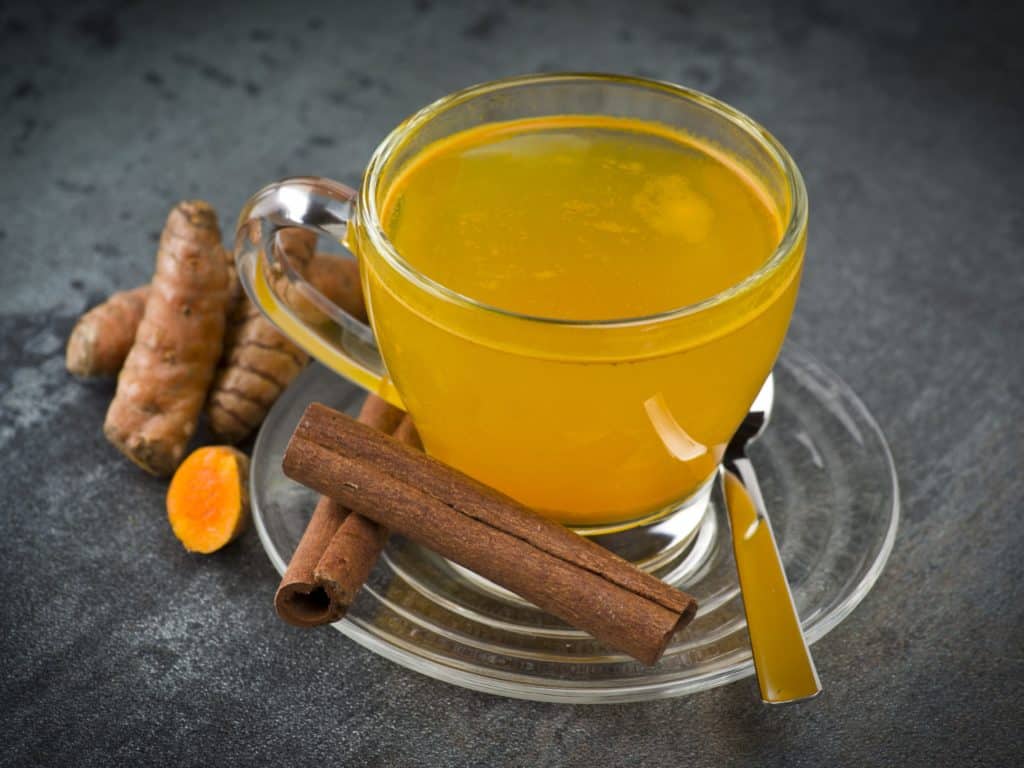
Turmeric tea, which is made from the yellow root of the turmeric plant, is the best tea for inflammation. The essential oil and the spice from the turmeric are useful and beneficial for human’s health.
Turmeric tea has a combination of earthy notes and ginger aroma. Many people who drink this turmeric tea often describe the hints of horseradish and mustard with a bitter flavor.
Turmeric tea is safe and effective in treating inflammation because it consists of curcumin, the active ingredient for treating chronic inflammation.
2. Rose Hip Tea
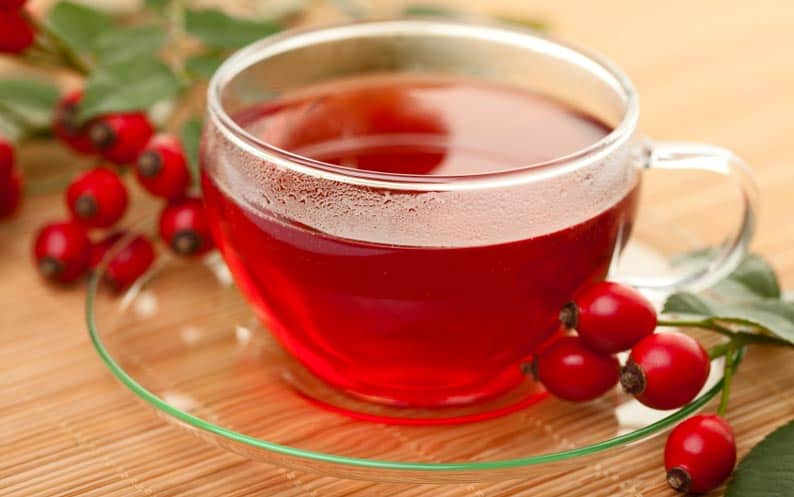
As the tea for inflammation, rose hip tea contains the berries that come from the rose plant. The berries come up after the flowers blossom and become orange-red color.
Vitamin C from the rose hips can help pump out the immunity and other compounds that reduce inflammation.
The study conducted by scientists found that the rose hips significantly decreased the pain intensity, joint stiffness, and inflammation.
Brew a cup of hot water with fresh rose hips to get the benefit of inflammation-fighting.
3. Cranberry Rose Hip Tea
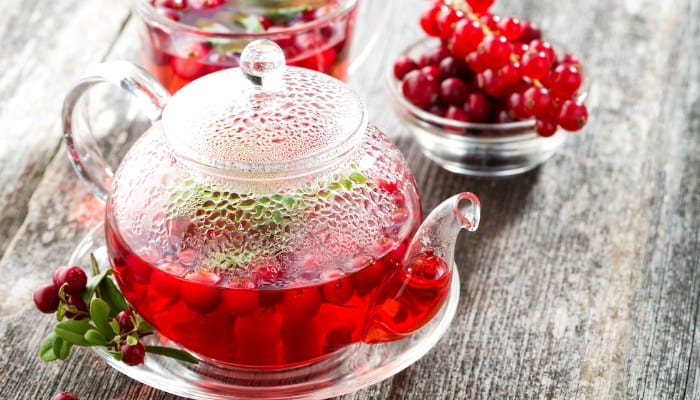
Considered as one of the teas that reduce inflammation, cranberry rose hip tea is another inflammation remedy to drink.
The rich vitamin C from the combination of berries from rose hip and cranberries can support the body immune system.
Furthermore, the acidity from both berries helps prevent bacteria from sticking to the bladder walls and stop bladder infections and urinary tract infections (UTIs).
4. Masala Chai
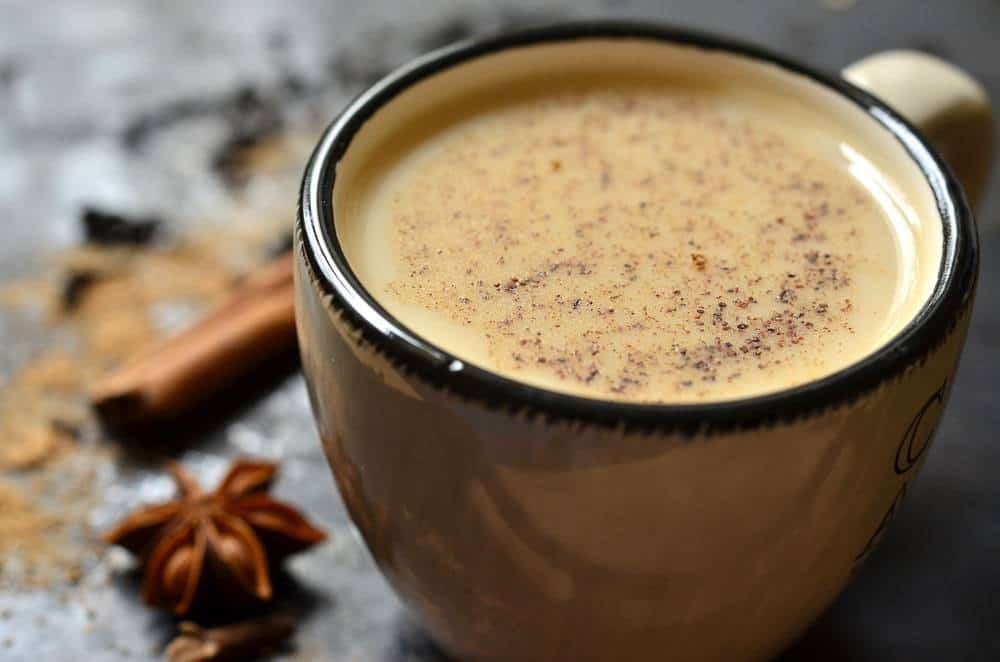
Chai is an Indian language for tea. This tea is the blend or the mix of spices and black tea leaves to flavor the tea. The blend of both ingredients has many health benefits for the human body.
The spices used to blend with the black tea are cinnamon, cloves, ginger, black pepper, and cardamom. These spices work greatly in treating health issues and reducing inflammation.
Furthermore, spices in masala chai blends enable to prevent the effect of free radicals, i.e., harmful changes to DNA.
5. Rooibos Tea
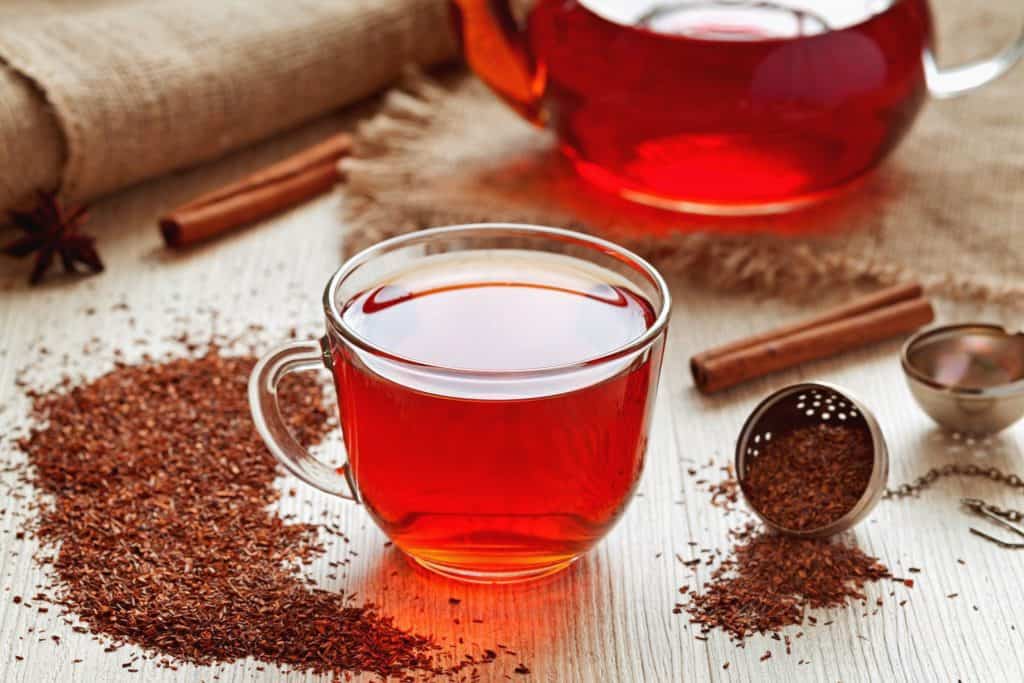
Originally coming from South Africa, rooibos or red bush tea is a herbal tea that is derived from the Aspalathus linearis plant.
The leaves of this plant are highly-processed and become the essential ingredients for the best tea for inflammation. This tea contains anti-inflammatory, caffeine-free, and health-promoting properties.
Compared to other teas, rooibos tea features anti-inflammatory flavonoids, asphalathin, and nothofagin that can help decrease the oxidative stress in the body.
To enjoy every sip when drinking rooibos tea, add teaspoons of sugar and splash milk.
6. Black Tea
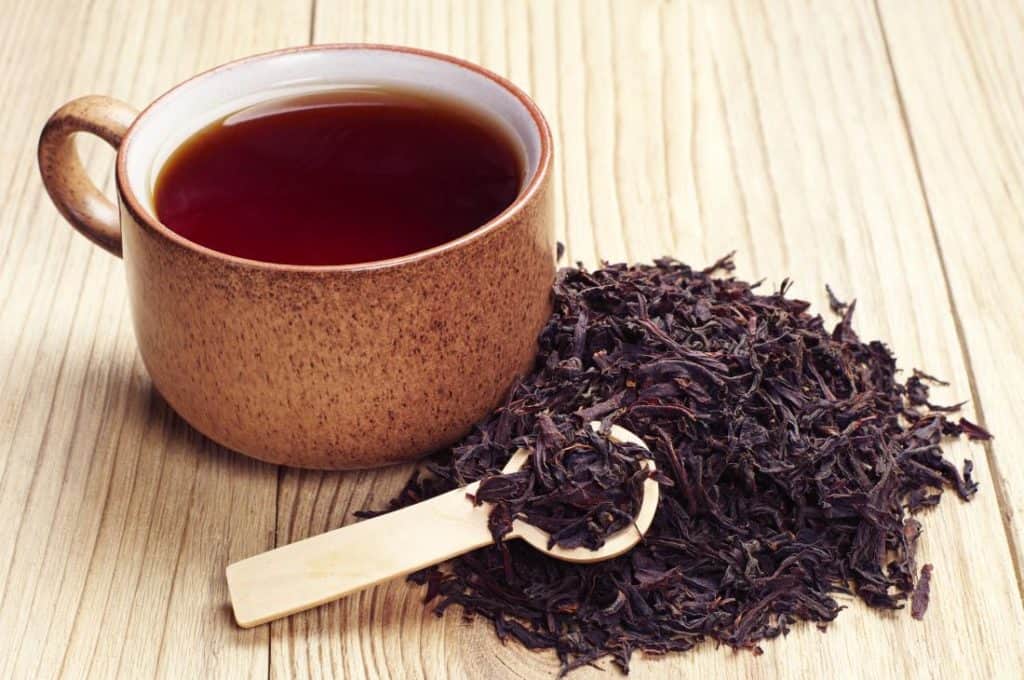
Black tea is originally derived from the leaves of the Camellia sinensis plant. This plant has become the main ingredients for disease treatment in Traditional Chinese Medicine for centuries.
To create a perfect black tea to drink, the leaves will undergo the process of fermentation before the leaves are drying. The fermentation of black tea will create a distinct flavor between black tea and green tea.
Camellia sinensis plant features different amounts of polyphenols, especially flavonoids. Flavonoids are the biological compounds that bring about a positive effect on the body.
The active flavonoids act as likely, anti-inflammatory compounds that help prevent the activity of enzymes from creating oxidative stress.
7. Green Tea
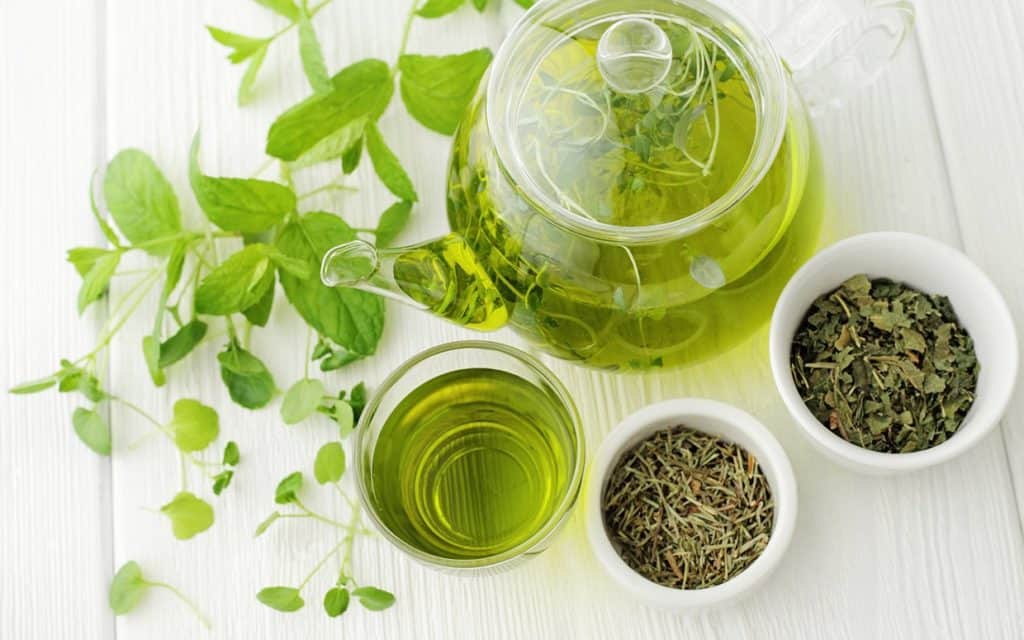
Green tea is widely-known all over the world, which has the compounds to fight inflammation. Green tea has become the subject of the research for many years for its therapeutic anti-inflammatory properties.
Compared to black tea, the process of green tea production does not involve fermentation, but only the dryness process. After being dried, the leaves continue to be steamed.
Green tea consists of flavonoids and more catechins, an antioxidant and a type of natural phenol. Both properties are well-known for bringing on anti-inflammatory effect in the body.
As the antioxidant property, catechins can help prevent extreme oxidative stress.
Read Now : GREEN TEA BENEFITS, TYPES, AND POSSIBLE SIDE EFFECTS
8. White Tea
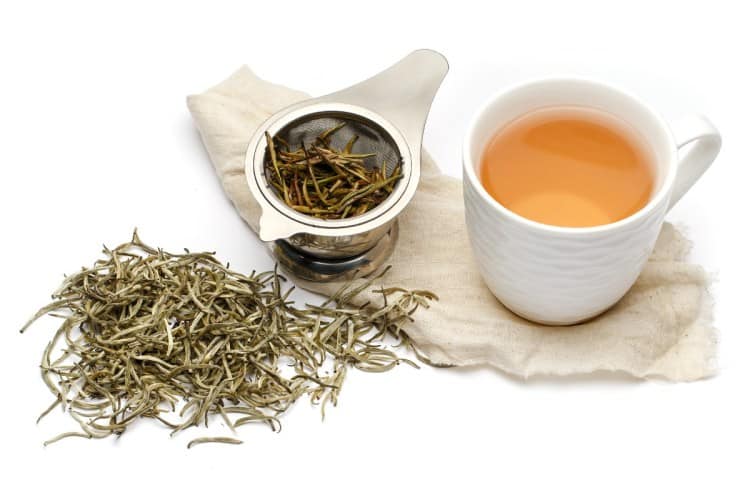
Derived from the leaves of the Camellia sinensis plant, white tea only receives minimally processed treatment.
The dried leaves of the plant inhibit any oxidation so that the active polyphenolic compounds from the leaves can be well-preserved.
According to the research, white tea contains protective anti-inflammatory flavonoids, like catechins, quercetin, and kaempferol that can help give protection to several certain types of cells from the damage.
Read Now : WHY YOU SHOULD START DRINKING WHITE TEA
9. Ginger Tea
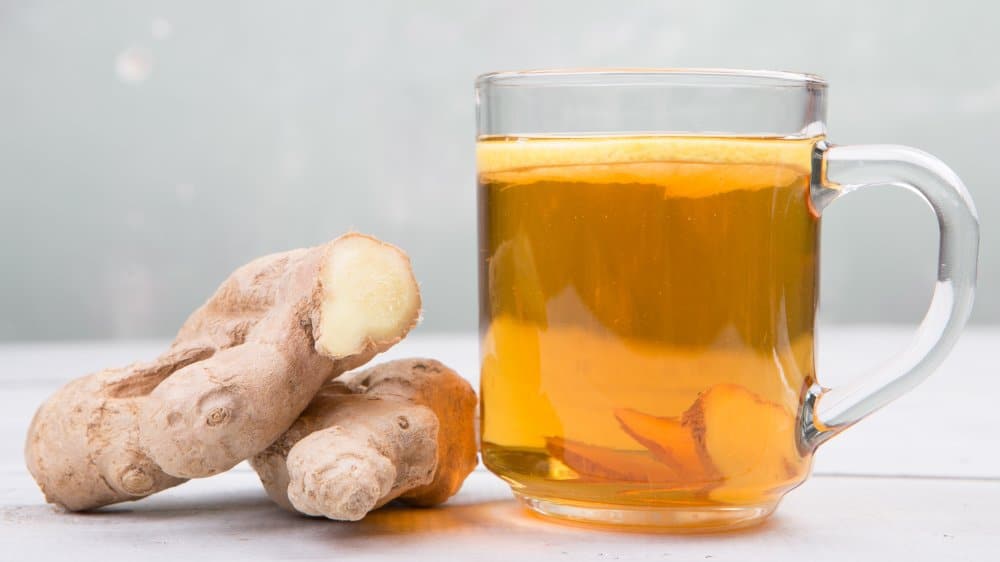
Ginger tea gives a unique spicy taste with savory scent and tingling taste. As the tea reduces inflammation type, many people like to drink it with the mix of honey and a slice of lemon to create balance flavor.
The ginger tea is derived from the ginger plant root and has already well-known for its health efficacy. Ginger has compounds, gingerol and shogaol, which plays a part in the process of inflammatory.
Both compounds in ginger can help reduce inflammation and prevent the resulting oxidative stress. Ginger tea also works effectively as the painkillers on the cellular level.
10. Chamomile Tea
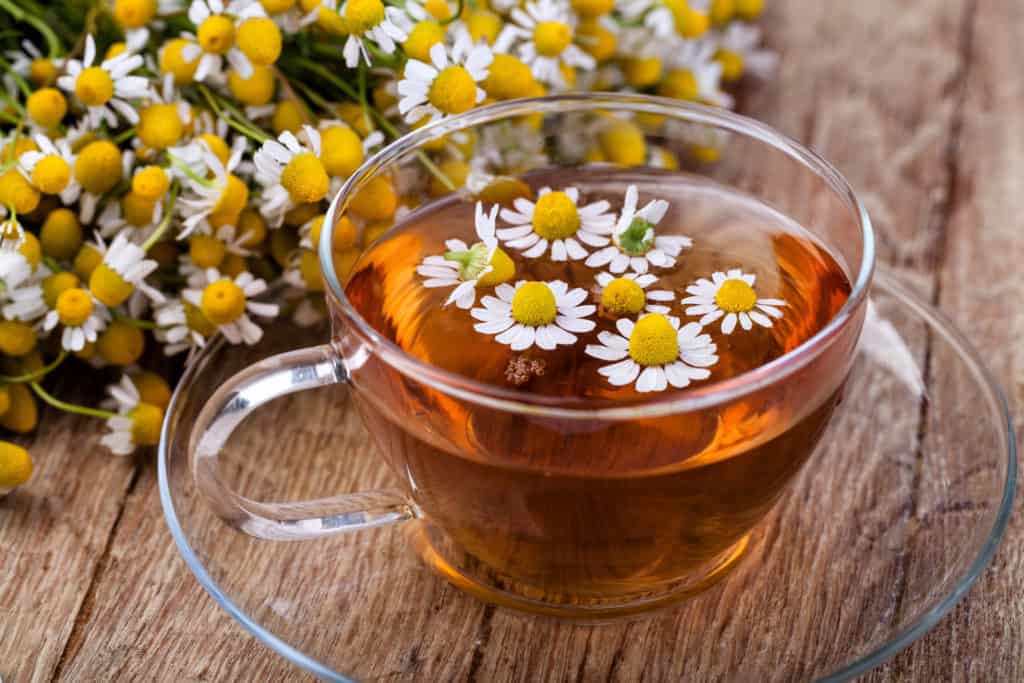
With the good scent from chamomile flowers, chamomile tea can give calming and soothing effect. This tea is derived from dried flowers of the Chamomilla recutita plant.
The Chamomilla recutita plant contains flavonoids and terpenoids which play a role as the medicinal, anti-inflammatory properties. This herbal tea is well-known for many centuries and used for traditional medicine.
The research found that the anti-inflammatory properties: essential oils and flavonoids from the chamomile tea help get into the surface of skin layers and slow down skin ageing.
In conclusion, if you suffer from chronic inflammation, you may start to treat it by drinking all these types of teas.
Each tea is the best tea for inflammatory and can help inhibit the side effects of chronic inflammation. The antibacterial and antiviral from the tea can help you to regain your health quickly from the injuries.


